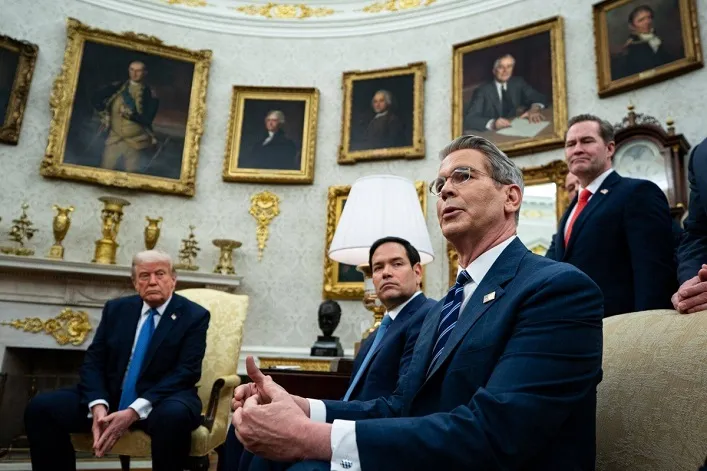September 23, 2025
The US and EU are taking different approaches on sanctions against Russia, particularly over energy imports and the role of China and India, signaling growing transatlantic policy tensions.

Tensions are rising between the United States and the European Union as the two allies diverge over the scope and severity of sanctions against Russia, highlighting complex geopolitical challenges amid ongoing global energy crises. The disagreements focus on how aggressively to sanction Russia, its energy exports, and trade relationships with major partners such as China and India. The divergence underscores differing strategic priorities and domestic pressures in Washington and Brussels, reflecting broader debates on how to balance economic interests, security concerns, and geopolitical influence.
The US has consistently advocated for a hardline approach toward Russia, emphasizing maximum economic pressure to deter aggression and limit Moscow’s ability to finance military operations. Washington’s sanctions packages have targeted Russian banks, oligarchs, and key industries, aiming to isolate Russia from global financial markets. In contrast, some EU nations are weighing a more measured approach, mindful of the bloc’s heavy reliance on Russian energy imports. Countries such as Germany, Italy, and Hungary have expressed concerns that overly strict sanctions could jeopardize energy security, increase costs for consumers, and destabilize domestic economies.
The debate has been further complicated by Russia’s engagement with China and India. Both countries continue to purchase Russian energy and maintain trade relationships that circumvent certain Western restrictions. US officials argue that any sanctions package must consider these indirect flows of revenue to Russia, warning that failure to account for alternative trade partners could undermine the effectiveness of Western measures. EU policymakers, while acknowledging the issue, have advocated for targeted sanctions that minimize collateral damage to European economies while still maintaining pressure on Moscow.
Energy imports remain at the heart of the transatlantic disagreement. The EU’s dependency on Russian oil and natural gas has been a contentious issue, particularly in the wake of supply disruptions and global price volatility. While the US has pushed for strict limits on Russian energy imports to reduce revenues to Moscow, EU nations have sought exemptions, transitional measures, and phased implementation to avoid economic shocks. This balancing act has exposed fault lines between European nations that prioritize economic stability and the US, which emphasizes strategic and moral imperatives in foreign policy.
Analysts note that the divergence between the US and EU could have long-term implications for Western cohesion on global security issues. A lack of unified strategy risks weakening the perceived deterrent effect of sanctions and emboldening Russia in both military and economic arenas. Diplomatic channels are reportedly being used intensively to reconcile positions, but differences remain stark. Washington has called for a synchronized approach that targets Russia’s energy revenues, financial networks, and trade partnerships comprehensively, while European leaders are advocating for a more flexible, negotiated approach that considers domestic energy needs.
The sanctions debate also intersects with broader global economic concerns. High energy prices, inflationary pressures, and supply chain disruptions have raised alarm across international markets, and policymakers must weigh the humanitarian and economic consequences of their decisions. The situation is further complicated by Russia’s ability to pivot trade toward Asia, potentially mitigating the impact of Western sanctions. China and India, as major buyers of Russian resources, are key variables in this complex geopolitical calculation. Their actions may determine the effectiveness of Western efforts to pressure Moscow, with implications for global energy markets and economic stability.
In conclusion, the US-EU divergence over sanctions on Russia highlights a critical moment in transatlantic relations. While both sides share the objective of restraining Russia’s geopolitical ambitions, differing economic realities, domestic pressures, and strategic priorities have led to conflicting approaches. The coming months will be crucial in determining whether the alliance can achieve a coordinated strategy that maximizes impact while minimizing unintended consequences for energy security, economic stability, and international diplomacy. As global actors such as China and India continue to engage with Russia, Western policymakers face the challenge of ensuring sanctions remain effective, enforceable, and strategically aligned across borders.